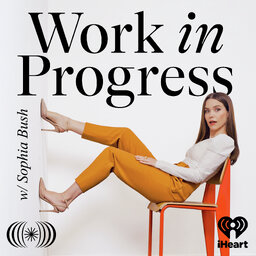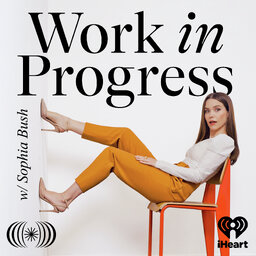Today on Work in Progress, Sophia is joined by David Whyte (@davidjwhyte)!!! David is an accomplished poet and associate fellow at Saïd Business School at the University of Oxford. He grew up in Yorkshire to an Irish mother and an English father, and his love of poetry and the natural world started early in his life. Rather than formally studying poetry and literature, David took a different path and earned a degree in Marine Zoology after being inspired by Jacques Cousteau. He was a natural guide in the Galapagos Islands and led tours into the Himalaya, and all of his adventurous travels ended up leading him right back to poetry. David has published several books of poetry and prose including The Bell and the Blackbird, Everything is Waiting for You, and The House of Belonging. He also has the unique credential of bringing poetry into the corporate world for the purpose of enhancing leadership. On today’s episode, Sophia and David discuss the robustness of vulnerability, being ravished by the natural world, and how sometimes you have to start “undoing” yourself in order to progress. They also share ideas about destiny, finding yourself, and how poetry is “the language against which we have no defenses.” If you’ve been wishing to see a little more poetry in the world lately, then this episode is definitely for you.
 Work in Progress with Sophia Bush
Work in Progress with Sophia Bush


